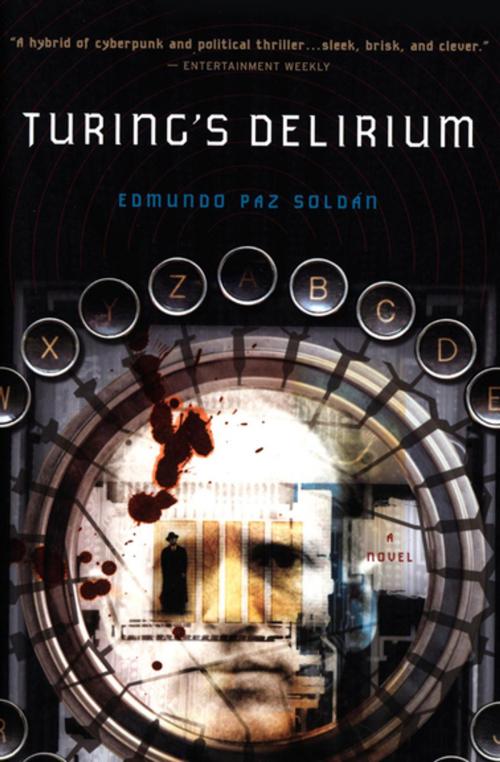Turing's Delirium
A Novel
Science Fiction & Fantasy, Science Fiction, Fiction & Literature, Thrillers, Mystery & Suspense| Author: | Edmundo Paz Soldán | ISBN: | 9780547798004 |
| Publisher: | Houghton Mifflin Harcourt | Publication: | June 1, 2007 |
| Imprint: | Mariner Books | Language: | English |
| Author: | Edmundo Paz Soldán |
| ISBN: | 9780547798004 |
| Publisher: | Houghton Mifflin Harcourt |
| Publication: | June 1, 2007 |
| Imprint: | Mariner Books |
| Language: | English |
Set in a near-future Bolivia, this “hybrid of cyberpunk and political thrillers [is] sleek, brisk, and clever” (Entertainment Weekly).
Set against a backdrop of advancing globalization, this award-winning, “fast-paced” literary thriller puts a cutting-edge digital spin on the age-old fight between the oppressed and the oppressor (The Miami Herald).
The South American town of Río Fugitivo is on the verge of a social revolution—not a revolution of strikes and street riots, but a war waged electronically, in which computer viruses are the weapons and hackers the revolutionaries. In this war of information, the lives of a variety of characters become entangled: Kandinsky, the mythic leader of a group of hackers fighting the government and transnational companies; Albert, the founder of the Black Chamber, a state security firm charged with deciphering the secret codes used in the information war; and Miguel “Turing” Sáenz, the Black Chamber’s most famous codebreaker, who begins to suspect his work is not as innocent as he once supposed.
All converge to create a “propulsive” novel about personal responsibility and complicity in a world defined by the ever-increasing gulfs between the global and the local, government and society, the virtual and the real (Publishers Weekly, starred review). Turing’s Delirium “combines the excitement of a political thriller with the intellectual ambition of a literary novel” (San Francisco Chronicle).
“If William Gibson were a Bolivian, this might be the kind of novel he’d be writing.” —Chicago Tribune
Set in a near-future Bolivia, this “hybrid of cyberpunk and political thrillers [is] sleek, brisk, and clever” (Entertainment Weekly).
Set against a backdrop of advancing globalization, this award-winning, “fast-paced” literary thriller puts a cutting-edge digital spin on the age-old fight between the oppressed and the oppressor (The Miami Herald).
The South American town of Río Fugitivo is on the verge of a social revolution—not a revolution of strikes and street riots, but a war waged electronically, in which computer viruses are the weapons and hackers the revolutionaries. In this war of information, the lives of a variety of characters become entangled: Kandinsky, the mythic leader of a group of hackers fighting the government and transnational companies; Albert, the founder of the Black Chamber, a state security firm charged with deciphering the secret codes used in the information war; and Miguel “Turing” Sáenz, the Black Chamber’s most famous codebreaker, who begins to suspect his work is not as innocent as he once supposed.
All converge to create a “propulsive” novel about personal responsibility and complicity in a world defined by the ever-increasing gulfs between the global and the local, government and society, the virtual and the real (Publishers Weekly, starred review). Turing’s Delirium “combines the excitement of a political thriller with the intellectual ambition of a literary novel” (San Francisco Chronicle).
“If William Gibson were a Bolivian, this might be the kind of novel he’d be writing.” —Chicago Tribune















